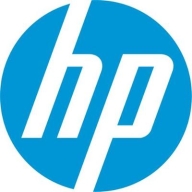

Symantec Endpoint Security and HP Wolf Security compete in the cybersecurity market. Symantec Endpoint Security is preferred for its pricing and customer support, while HP Wolf Security has superior features.
Features: Symantec Endpoint Security receives high marks for its comprehensive threat detection, robust malware protection, and real-time threat analysis. HP Wolf Security is praised for its strong isolation capabilities, seamless integration with other HP products, and enhanced isolation features that protect against sophisticated threats.
Room for Improvement: Symantec Endpoint Security users suggest improving the complexity of initial setup, occasional system performance slowdowns, and the steep learning curve. HP Wolf Security users recommend enhancing reporting functionalities, making the management console more intuitive, and addressing some minor usability issues.
Ease of Deployment and Customer Service: Symantec Endpoint Security users report ease of deployment but a steep learning curve during configuration, with positively rated responsive customer service. HP Wolf Security is noted for its straightforward deployment process and excellent customer service. The main difference is that HP Wolf Security offers a more user-friendly deployment experience.
Pricing and ROI: Symantec Endpoint Security is favored for its competitive setup costs and strong ROI. HP Wolf Security, while generally more expensive, is deemed worth the price due to its superior protection features and integration capabilities.

HP Wolf Security is a comprehensive cybersecurity solution that bolsters your organization's cyber-resilience on multiple fronts. With its full-stack security approach, it ensures layered protection from hardware to the cloud, providing a robust defense against cyber threats. HP Wolf Security introduces endpoint isolation, a cutting-edge feature that effectively halts threats that may go unnoticed by Next-Generation Antivirus (NGAV) and Endpoint Detection and Response (EDR) systems. Moreover, it extends its security coverage to printers, equipping them with advanced detection and self-healing capabilities to further safeguard your digital ecosystem. This integrated solution streamlines IT and security risk management, resulting in fewer alerts and false positives, and reduces the time and effort required for endpoint incident analysis and remediation. Notably, HP Wolf Security prioritizes productivity, allowing you to manage risk without disrupting the user experience, enabling worry-free work from anywhere, and offering rapid IT disaster recovery at scale.
Symantec Endpoint Security is a robust and reliable product that provides complete protection against viruses, malware, Trojans, and malicious files. It offers application and device control, ease of use in deploying and updating, a central control console, stability, scalability, auto-discovery capabilities, patch management, endpoint detection and response capabilities, intrusion detection module.
The Symantec Global Intelligence Network (GIN) provides threat intelligence and detection across endpoints, email, and web traffic. It has helped organizations reduce downtime, increase productivity, and improve security posture. Symantec Endpoint Security is easy to use, has a flexible administration, and offers more value than expected.
We monitor all Endpoint Protection Platform (EPP) reviews to prevent fraudulent reviews and keep review quality high. We do not post reviews by company employees or direct competitors. We validate each review for authenticity via cross-reference with LinkedIn, and personal follow-up with the reviewer when necessary.